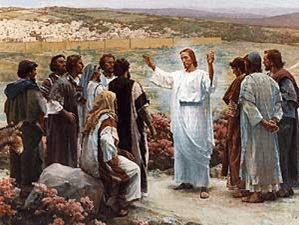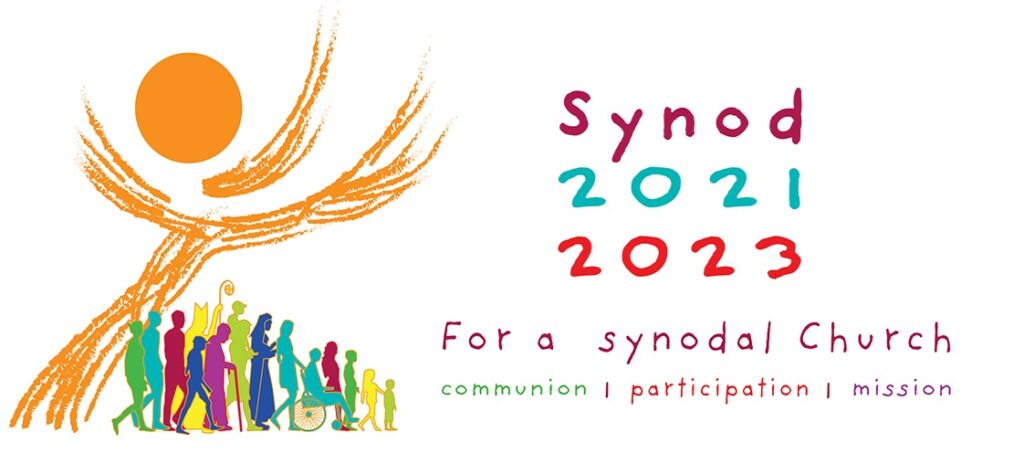
Blessings and Woes
The sermon in Luke is counterpart to the sermon in Matthew (cf. Matthew 5:1–7:27). Many bible readers tend to think that the two sermons are separate events because Luke locates the sermon on a “stretch of level ground” (cf. Luke 6:17) while Matthew locates the sermon on a mountain (cf. Matthew 5:1). Thus, the sermon in Luke has often been referred to as the “Sermon on the Plain,” while the sermon in Matthew has been referred to as the “Sermon on the Mount.” However, many commentaries hold that the described location alone is not enough to conclude that the two Gospels are referring to two separate events. Both Gospels may have described the same event from two different vantage points. Luke describes Jesus as standing on “a stretch of level ground,” while Matthew may have chosen to emphasize Jesus going “up the mountain” in order to make his mainly Jewish audience reminiscent of Moses going up “the mountain of God” (cf. Exodus 24:12-13).
Both Luke and Matthew start off the sermon with blessings. Almost all the words of Jesus recorded in Luke are found in Matthew, but Matthew’s version is much longer because it includes sayings that were related to Jewish Christian problems (e.g., the law and the prophets in Mt 5:17–20, and the hypocrisy of the scribes and Pharisees in 6:1–8, 16–18). Luke may not have included those sayings because they weren’t relevant to his predominantly Gentile audience.
The blessings and woes in the sermon in Luke address the real economic and social conditions of humanity (the poor vs. the rich; the hungry vs. the satisfied; those grieving vs. those laughing; the outcast vs. the socially acceptable). By contrast, the sermon in Matthew emphasizes the religious and spiritual values of disciples in the kingdom inaugurated by Christ; hence the use of the phrases “poor in spirit” and “hunger and thirst for righteousness.”
Many bible readers take the blessings and woes in the literal sense; therefore, they miss the deeper meaning of the words of our Lord. Common sense tells us that just because a person is poor and hungry, it doesn’t mean that that person will automatically attain God’s kingdom. Similarly, just because a person is rich and filled doesn’t mean that that person will automatically be shut off from God’s kingdom. The “woes” are meant to wake up those who are rich and filled, laughing and esteemed, to the fact that it is much harder for people who already have good things in this life to earnestly seek the kingdom of God and to become a disciple of Christ. Jesus said to his disciples, “Amen, I say to you, it will be hard for one who is rich to enter the kingdom of heaven.” (Matthew 19:23)
The important phrase to note and remember is “on account of the Son of Man.” Those who are poor, hungry, grieving and cast out of society for the sake of the kingdom of God will reap their reward in heaven. Those who are rich, well-fed, indulge in merry-making and regarded highly due to worldly success must rather seek the kingdom of God. Rich or poor, the disciple of Christ must not be blinded nor constrained by their present situation from seeking the kingdom of God.
Ultimately, the sermons in Luke and Matthew were aimed to edify the disciple to recognize and appreciate the value of God’s kingdom, regardless of their social and economic state in life. At the core of the sermon in Luke is Jesus’ teaching on the love of one’s enemies and one’s neighbor. The love of enemies is based on God’s kindness even to the ungrateful and wicked (cf. Luke 6:35–36), while the love of neighbor that is characterized by forgiveness and generosity (cf. Luke 6:37–42). Do you aspire to enter the kingdom of God? Then take heed and live by the teachings of Christ in the sermons in Luke and Matthew!

The parishes in the Archdiocese of Atlanta will participate in Pope Francis’ initiative called “Synod 2021-2023.” The purpose of this synod is “to plant dreams, draw forth prophecies and visions, allow hope to flourish, inspire trust, bind up wounds, weave together relationships, awaken a dawn of hope, learn from one another and create a bright resourcefulness that will enlighten minds, warm hearts, give strength to our hands.” We will begin our listening sessions the following Sunday, February 20, 2022. All are welcome to join. Participants will meet in the Social Hall immediately after the 10:30am Mass.
Prayer List:Zheng Zhiming 、Wang Dacheng 、Carolyn Johnson 、Wang Shuangsan 、Pan Bo Hao 、Long Guorui 、Zhang Qiang 、Xu Taicheng 、Qiu Laihao。